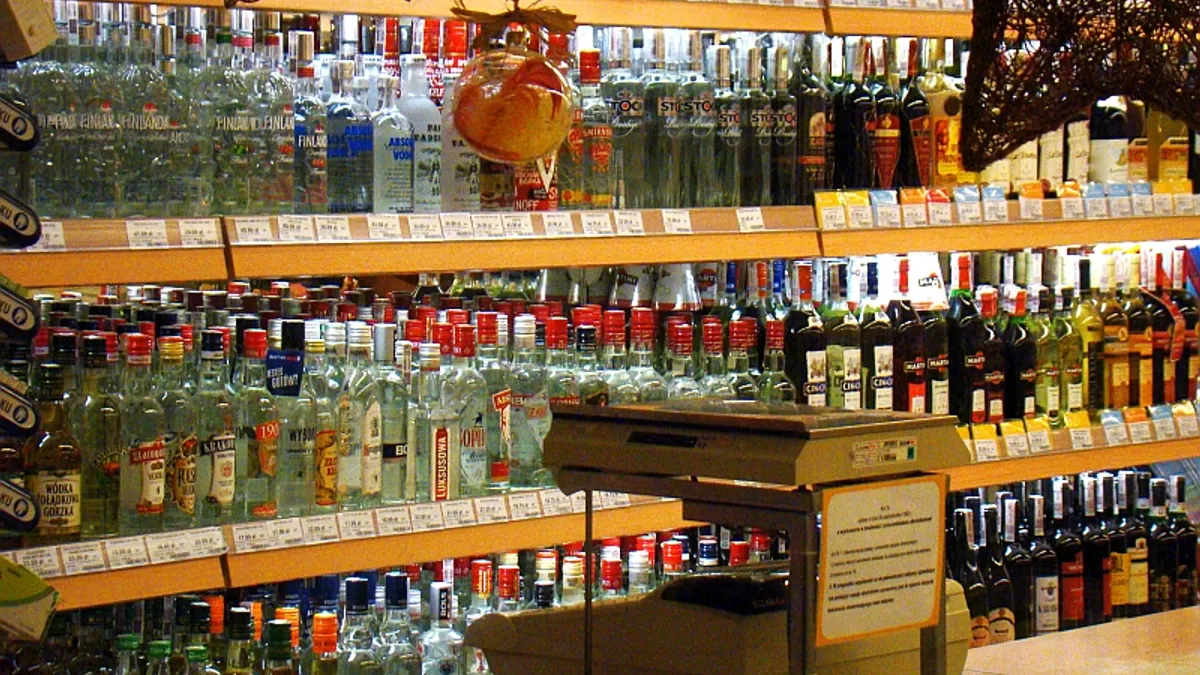Dive Brief:
- Florida legislators have introduced bills that would allow grocery stores throughout the state to sell liquor, reports The Florida Times-Union. Currently, liquor can only be sold inside dedicated stores.
- Supporters of House Bill 81 and Senate Bill 106 include grocery retailers like Wal-Mart, Target and Whole Foods.
- Those opposed to the bills, meanwhile, claim the availability of alcohol in supermarkets will encourage consumption by minors.
Dive Insight:
When it comes to alcohol sales, the U.S. is a patchwork of regulations that vary from state to state. Twenty states allow supermarkets to sell beer, wine and liquor, while thirteen — Florida among them — allow the sale of beer and wine. The rest only allow the sale of beer, or outlaw the sale of beer in grocery stores altogether (five of these states, including Oklahoma and Colorado, allow the sale of beer with an ABV of 3.2% or below). And then there are the special cases like New Jersey, which grants supermarket chains two liquor licenses, and Maryland, where the counties control the liquor laws.
Why are there so many different laws? To understand that, you need to go all the way back to repeal of Prohibition in 1933. The repeal took alcohol enforcement out of federal hands and gave it over to the states, which proceeded to develop their own regulations.
The opponents of Florida’s liquor bills insist they’re helping limit the sale of liquor to minors. In fact, research shows that excessive consumption actually goes down with wider availability of alcohol at supermarkets. There are many theories to explain this, including that supermarkets drive smaller liquor stores out of business, which concentrates the supply of alcohol to fewer locations.
Indeed, numerous studies show that allowing grocers to sell wine and liquor increases revenue for retailers, wineries and distilleries, and generates more tax revenues for states. Who does it hurt? Liquor stores and many small manufacturers.









